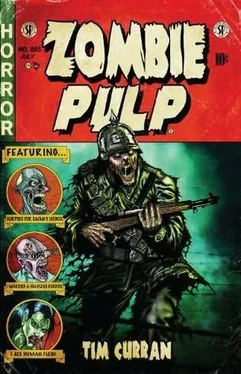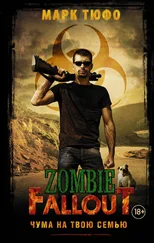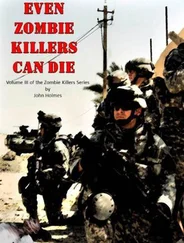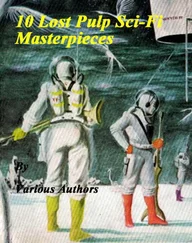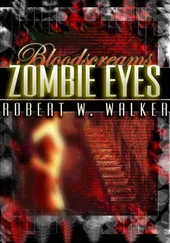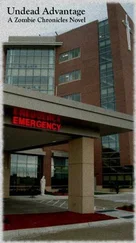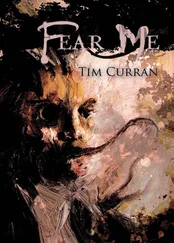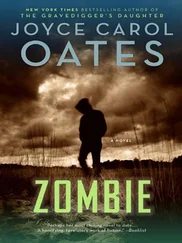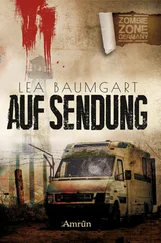Curran Array - Zombie Pulp
Здесь есть возможность читать онлайн «Curran Array - Zombie Pulp» весь текст электронной книги совершенно бесплатно (целиком полную версию без сокращений). В некоторых случаях можно слушать аудио, скачать через торрент в формате fb2 и присутствует краткое содержание. Жанр: Триллер, на английском языке. Описание произведения, (предисловие) а так же отзывы посетителей доступны на портале библиотеки ЛибКат.
- Название:Zombie Pulp
- Автор:
- Жанр:
- Год:неизвестен
- ISBN:нет данных
- Рейтинг книги:3 / 5. Голосов: 1
-
Избранное:Добавить в избранное
- Отзывы:
-
Ваша оценка:
- 60
- 1
- 2
- 3
- 4
- 5
Zombie Pulp: краткое содержание, описание и аннотация
Предлагаем к чтению аннотацию, описание, краткое содержание или предисловие (зависит от того, что написал сам автор книги «Zombie Pulp»). Если вы не нашли необходимую информацию о книге — напишите в комментариях, мы постараемся отыскать её.
Zombie Pulp — читать онлайн бесплатно полную книгу (весь текст) целиком
Ниже представлен текст книги, разбитый по страницам. Система сохранения места последней прочитанной страницы, позволяет с удобством читать онлайн бесплатно книгу «Zombie Pulp», без необходимости каждый раз заново искать на чём Вы остановились. Поставьте закладку, и сможете в любой момент перейти на страницу, на которой закончили чтение.
Интервал:
Закладка:
After that, solemn as only undertakers can be, they finished up their work quickly, each man suddenly very aware of the long shadows stretching around them and what might be hiding in them. They wasted no time in getting back to the trenches.
For there was something damnably unnatural haunting No-Man’s Land and they all knew it.
7
Tall Tales
The Tommies, when they gathered in the dugouts to warm their fingers about the glowing little coal brazier at night, their bellies warmed from the daily rum ration, would start telling crazy tales by the light of the moon. And maybe sometimes that was because they had a story to tell and sometimes because they just needed to hear their own voices.
Creel understood that part of it just fine.
After a particularly violent barrage in the Le Touquet sector by German 18-pounders, whizz-bangs, which blew sandbags into fragments, a young private from the 2 ^ nd Lancashire Fusiliers with eyes like smoked glass kept touching his arms and legs and chest in the observation trench.
Standing there, knee-deep in the frozen mud, Creel said, “It’s okay, son. You’re still intact.”
“ Oi, it’s not that, sir,” said the private, touching his grime-streaked face. “It’s not that at all, you see. It’s just…well, I’m making sure I’m solid and what, not a ghost. One minute you’re solid as brick, the next naught but a ghost drifting about.”
In the trenches where death came so swiftly there was a real need to prove to yourself that you were truly alive, a thing of flesh and blood. When you spent week after miserable week living in what amounted to sandbagged ditches with freezing drizzle raining down on you, ears ringing from machine-gun fire, the pitted landscape a cratered run of barbwire and unburied corpses lit at night by flickering green flares…it all became very surreal. And the need to prove to yourself that you were not in some desolate hell or purgatory whiling away eternity became very strong.
Creel had felt it himself more than once.
Scribbling down the vagaries of life in the trenches, the madness was always there and he was mute witness to it. Very often, it vented itself in the form of stories. Particularly after a fierce action or raid, like bad blood that had to be lanced.
He’d heard about monstrous packs of rats that took down living men. About visions of Christ and the Virgin Mother in the trenches. The phantoms of dead men patrolling the perimeters. And from one particularly terrified sergeant of the King’s Royal Rifle Corps, he’d heard about a creature half-bird and half-woman, a hag that fed on corpses (later he learned that was an old one, so old it had hair growing on it, a twice-told battlefield tale that predated the days of Cromwell).
But he was a realist.
Seventeen years as a combat correspondent will do that. It will leech the poetry from your soul and sometimes that’s not a bad thing. War, any war, is bad enough without a fertile imagination complicating things.
But after the burial party…and what that German sergeant had said…he began thinking differently.
It was the state of those corpses and the footprints that haunted him for days afterwards. Maybe it meant nothing at all…yet, his mind would not let go of it. Over and over again, it went through what he’d seen out there and he began to get that feeling in his gut he hadn’t had in years…the sense that he was onto something. And when that feeling grew strong, when he smelled the blood in the water, he knew he’d have to track it to its source, one way or another.
But he went slow.
He went easy.
When you were in his position, there by the good graces of the BEF-even if their reasons weren’t exactly altruistic-you could not make waves. He wasn’t like some of the British newsies, guys like John Buchan or Valentine Williams, Henry Nevinson or Hamilton Fife, established accredited war correspondents. They had been selected by the Brits to shovel out the propaganda and were doing a bang-up job at it, steering the British public away from the godawful truth of the war and finely tuning their misguided perception of a valiant struggle against the bloodthirsty savage Hun (with only light, acceptable losses, of course). If they knew the truth of what was being done with their sons and husbands, brothers and fathers in the meatgrinders of the trenches, there would be rioting in the streets.
Creel was offended by censored news.
Maybe his own stories were watered down, but he did manage to keep a somewhat despairing undercurrent to them. He would not be a tool of corrupt politicians regardless of what side of the Atlantic they spawned on.
But he knew he had to be careful.
He had to step light.
So he didn’t make much noise at first, he just listened.
And he kept hearing the same thing again and again: there was something out there. Something that wasn’t a man. Something that fed on the wounded and dying. He jotted it all down in his notebook, thinking it was the sort of thing that might spice up yet another dreary account of war.
Then three men of the 12 ^ th disappeared from a listening post a stone’s throw from the German forward trenches. And this after not one but two wire-cutting parties failed to return.
“ It’s nothing but the Jerries,” Sergeant Haines said. “They snuck up on ‘em, took ‘em prisoner. Them Jerries is quite good at things like that.”
It was always possible. But Sergeant Stone, who’d led the three, was extremely capable.
“ So when are you going out?” Creel asked him.
“ Tomorrow,” Haines said. “We’ll have a bit of a look. Be a morning mist coming in.”
“ I want to go with.”
“ You?”
“ Yes.”
The sergeant sighed. “All right. But you carry rifle and kit like the rest. If you lag, you’re left behind.”
8
No-Man’s Land
Haines was right about the mist: it came with the dawn, white and fuming, a perfect enveloping wall that obscured everything, turned all the wreckage out in No-Man’s Land to gray indistinct shapes. As the sun rose higher and higher, it did not dissipate. It seemed to be steaming from the broken, mud-slicked ground itself. It fell over the trenches like a shroud and visibility was down to ten or twelve feet. Creel could hear the men and the clank of their equipment but not see them.
There was no time to admire the fog as the officers and sergeants called for the men to “stand to” and up on the fire step they went, bayonets fixed to guard against a dawn raid. It was the same every day. Afterwards came what the Tommies called the “morning hate” in which both sides exchanged machine-gun fire and some light shelling just to relieve the tension of waiting. It didn’t last long. The soldiers stood down, cleaned rifles and equipment, were inspected by the officers.
“ Hear you’re coming for a walk with us,” Corporal Kelly said to Creel as they breakfasted on hard bread, bacon, and biscuits.
“ Thought I might,” Creel told him.
“ Won’t be good out there, sir,” Kelly said, shielding his rations from a light falling rain. “If I was you, I’d change me mind. You don’t have to go but we do.”
There was no getting past the dread underlying his words, but was that the understandable fear of the enemy or was it something else? Creel didn’t ask. No sense getting any of the boys worked up and nervous like he was.
“ The bloody situations you get me in,” Burke said to him as he had a cigarette. “Think I’d be safer in combat.”
“ Something’s going on out there,” Creel told him, “and I have to find out what.”
“ Still on that, mate?” Burke said.
“ Yes, and I’m going to be on it until I figure it out. You can’t tell me you don’t sense it like I sense it. It’s there. Something incredible. Something unreal.”
Читать дальшеИнтервал:
Закладка:
Похожие книги на «Zombie Pulp»
Представляем Вашему вниманию похожие книги на «Zombie Pulp» списком для выбора. Мы отобрали схожую по названию и смыслу литературу в надежде предоставить читателям больше вариантов отыскать новые, интересные, ещё непрочитанные произведения.
Обсуждение, отзывы о книге «Zombie Pulp» и просто собственные мнения читателей. Оставьте ваши комментарии, напишите, что Вы думаете о произведении, его смысле или главных героях. Укажите что конкретно понравилось, а что нет, и почему Вы так считаете.
